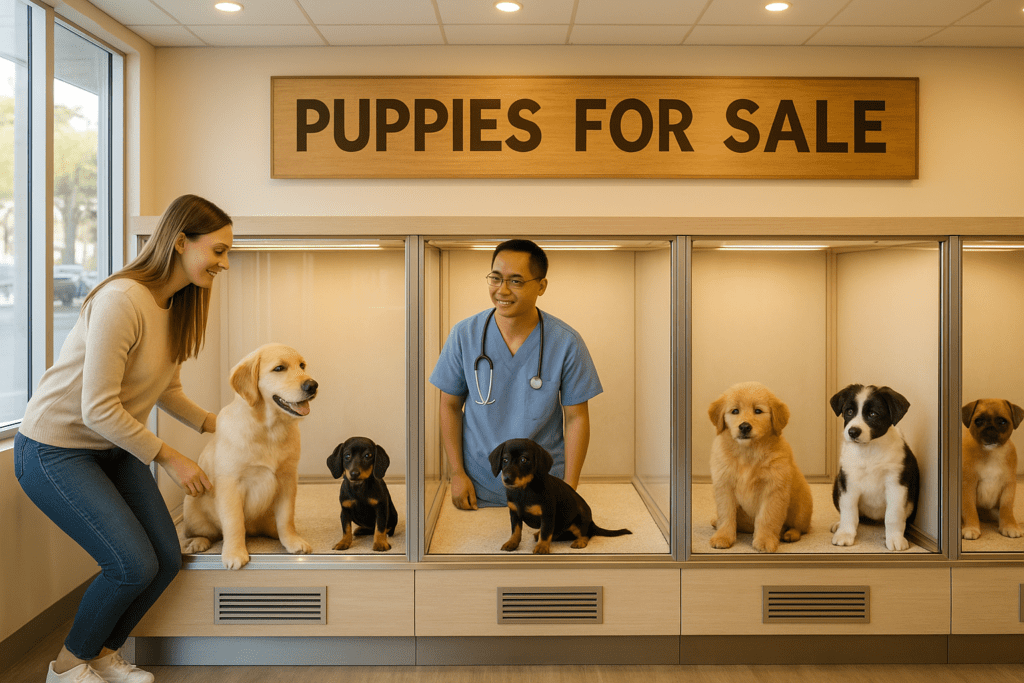
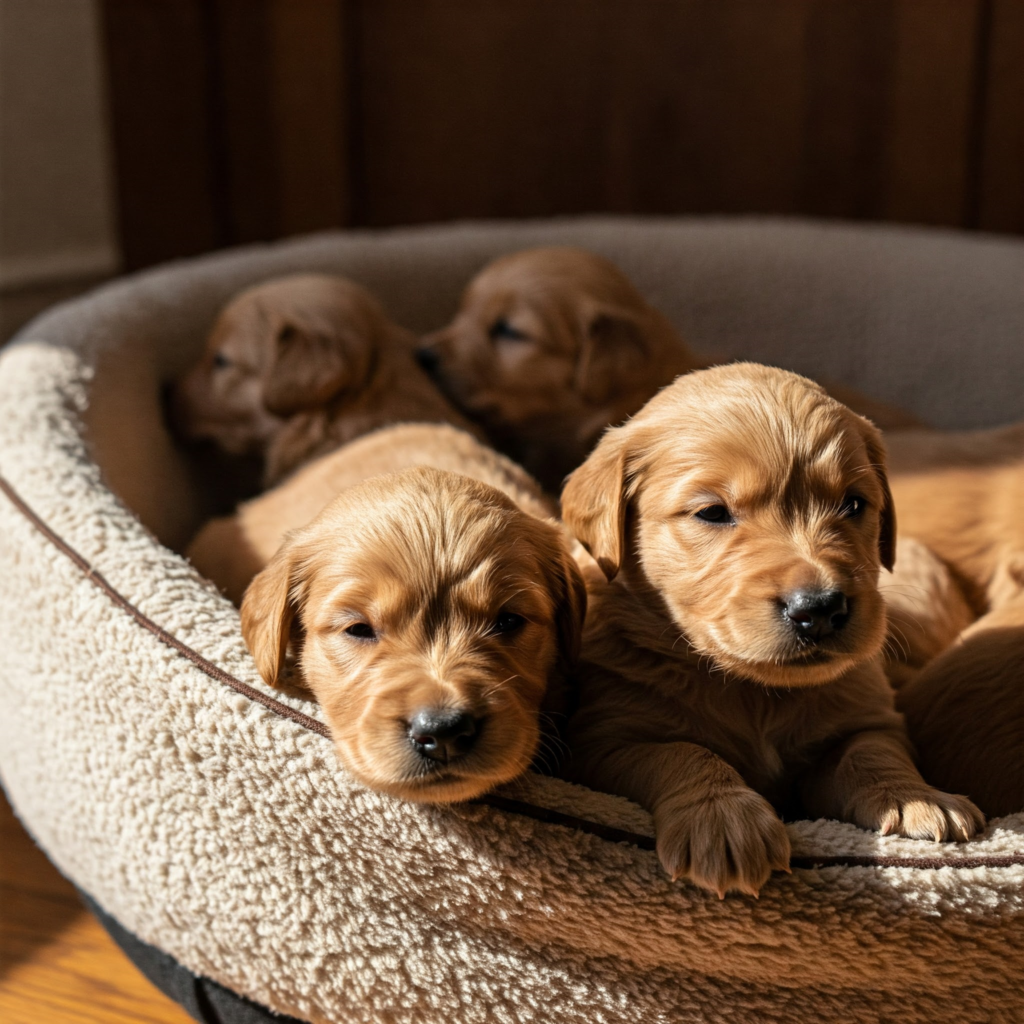
Training Your Golden Retriever
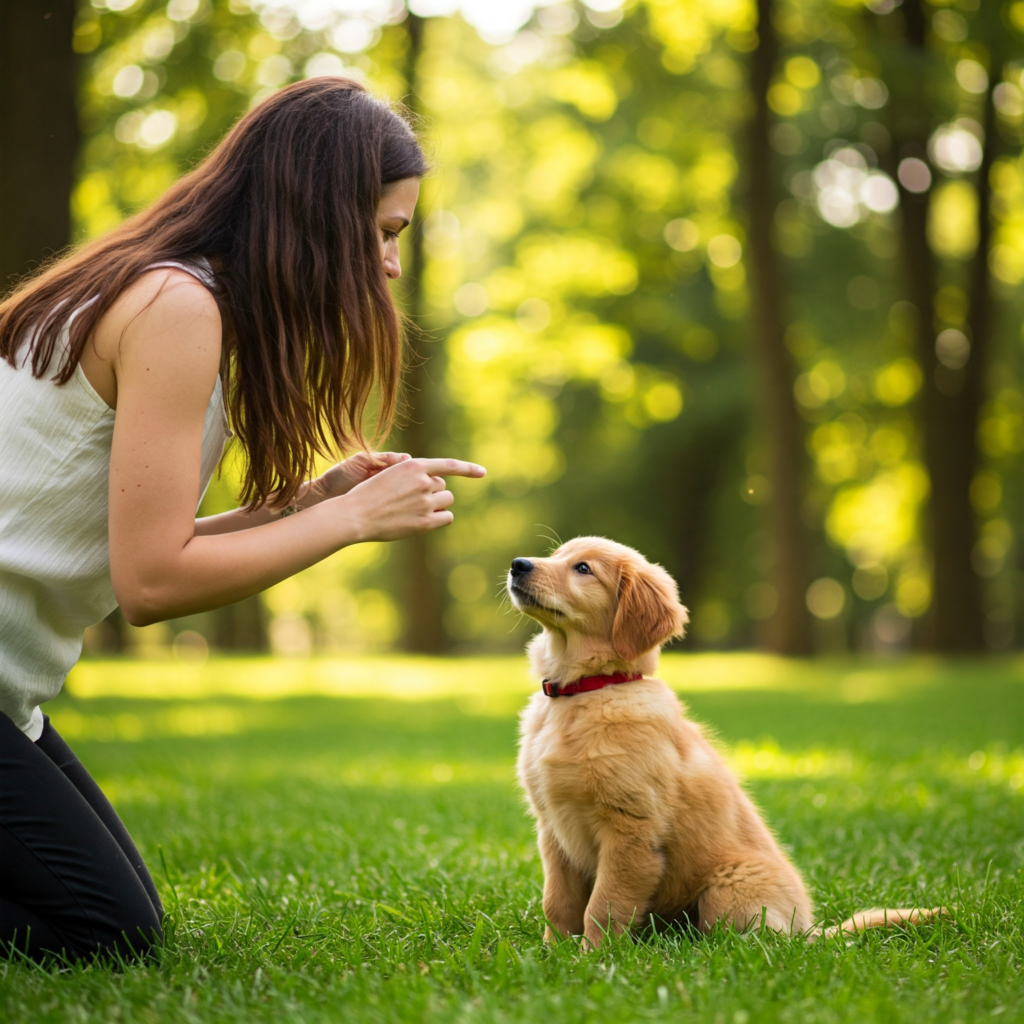
Socialization Tips: For Golden Retriver
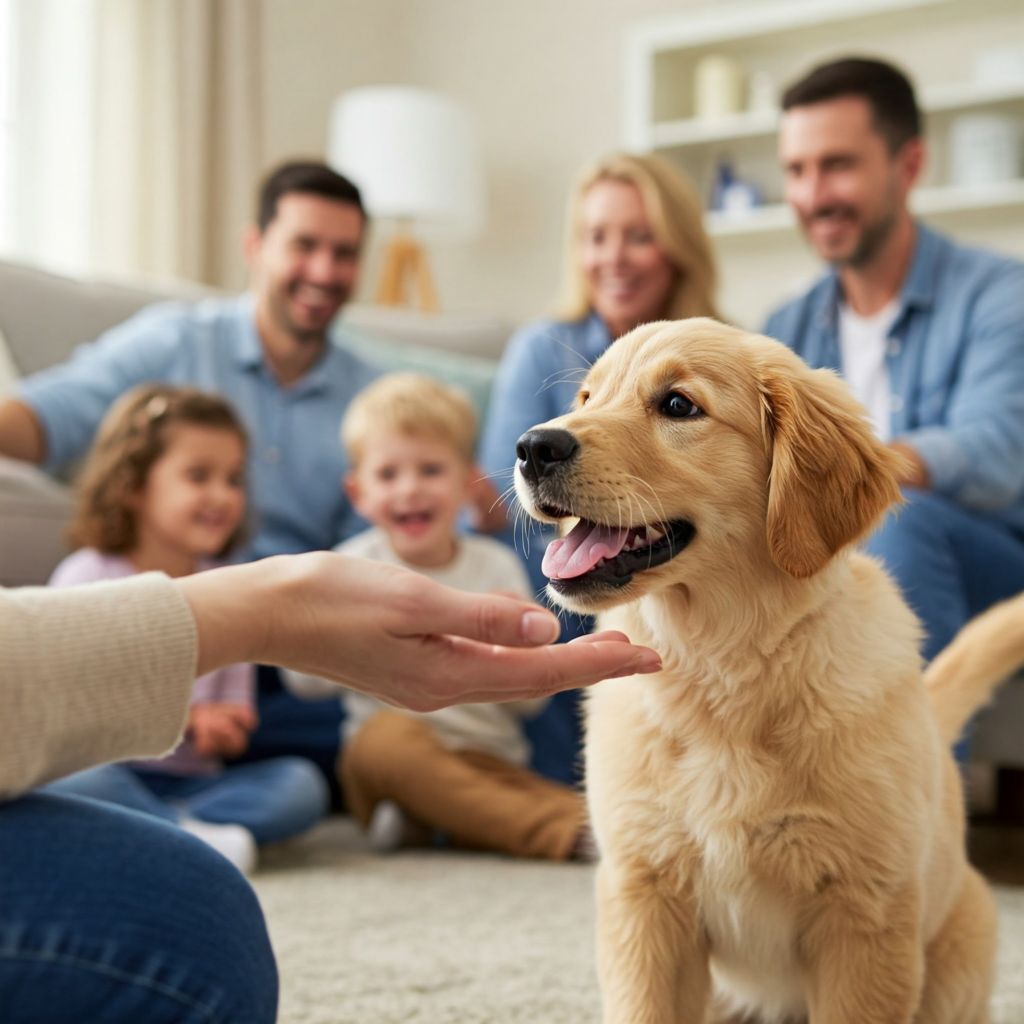
~Early socialization is essential for Golden Retriever puppies to grow into friendly, confident adult dogs. The best time to start is between 8 to 16 weeks of age, when puppies are most open to new experiences. During this period, gently introduce your pup to different people, places, sounds, and other animals.
~Take short walks in safe environments, visit friends with calm dogs, or invite visitors over to your home. Reward your puppy with treats and praise when they stay calm and curious. Exposing them to a variety of situations helps reduce fear and anxiety later in life.
~Avoid overwhelming your puppy—always go at their pace. Positive, controlled experiences build trust and teach them how to react to the world around them. With consistent effort, your Golden Retriever puppy will become a well-socialized companion who’s comfortable in new environments and friendly with everyone they meet.
Nutrition and Health Care for Golden Retriver Puppies
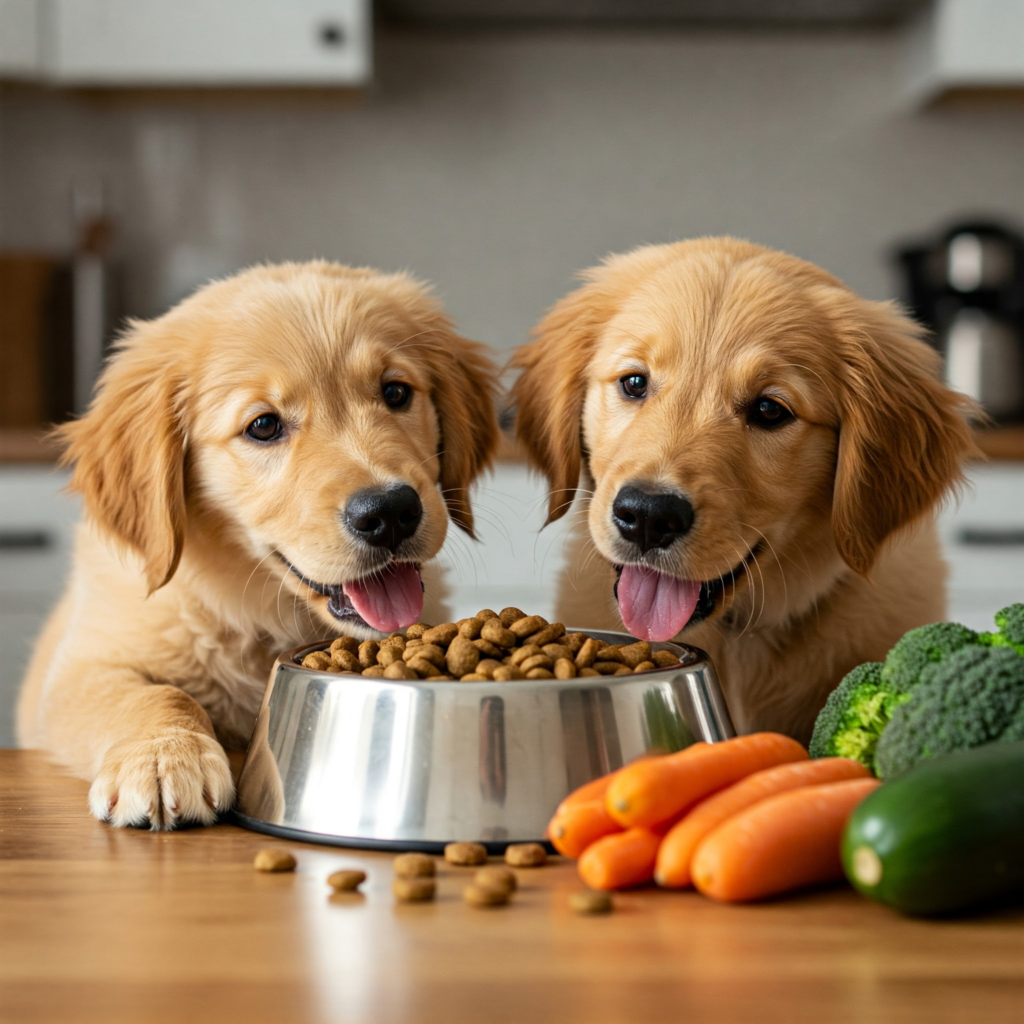
~Feeding your Golden Retriver puppies a balanced diet is essential for healthy growth and development. Choose a high-quality puppy food formulated for large breeds to support strong bones, joint health, and a healthy immune system. Look for ingredients like real meat, DHA for brain development, and calcium for bone strength.
~Feed your puppy on a consistent schedule—typically three times a day until they’re about six months old. Avoid overfeeding, as Golden Retrievers are prone to weight gain. Always provide fresh water, and consult your vet for personalized feeding recommendations based on your puppy’s age and activity level.
Regular Vet Check-ups
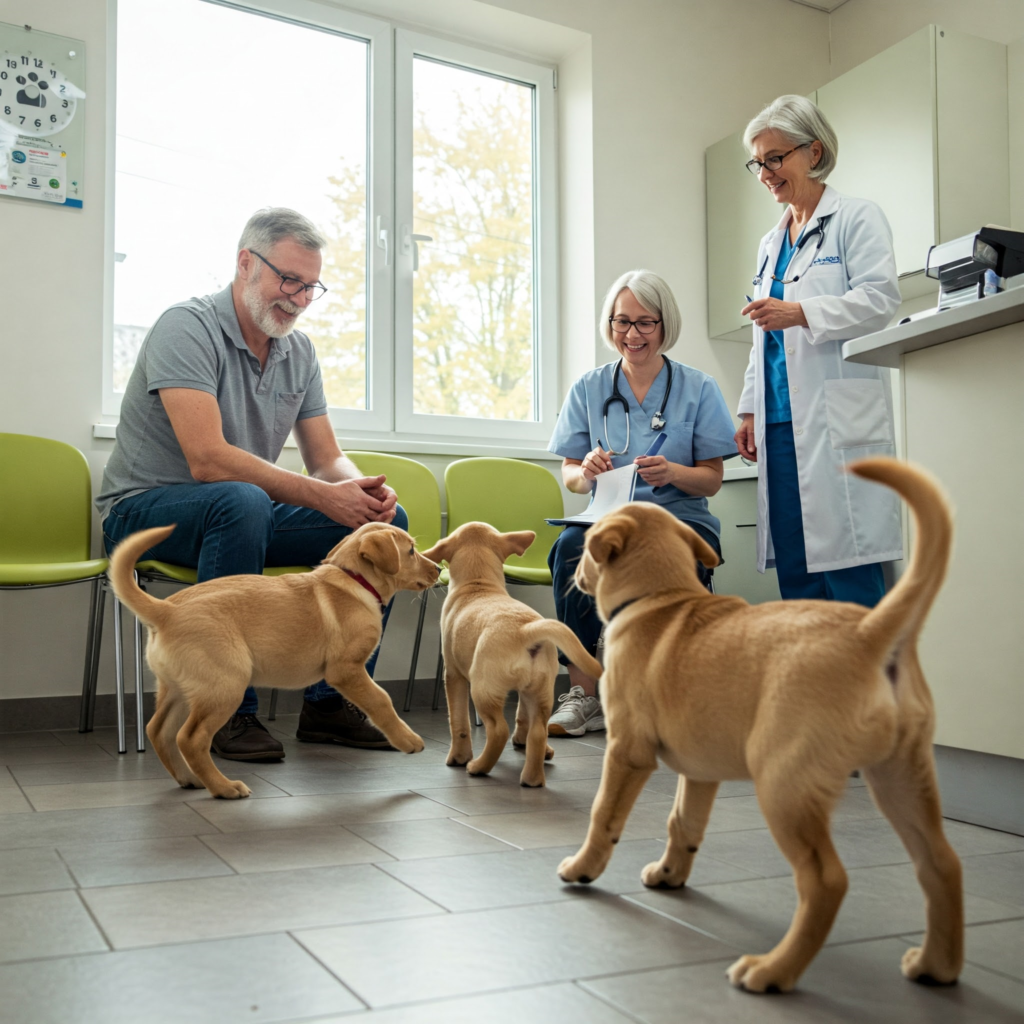
Physical Activity and Playtime
Golden Retriever puppies are energetic, playful, and full of curiosity. Regular physical activity is essential for their mental and physical development. While they don’t need intense exercise at a young age, short, frequent play sessions are perfect for burning off energy and building coordination.
Games like fetch, gentle tug-of-war, or short walks in safe areas help meet their daily activity needs. Mental stimulation is just as important—puzzle toys, training games, and scent-based play keep their minds sharp and reduce boredom-related behaviors.
Be mindful not to over-exercise your puppy, especially while their bones and joints are still developing. Avoid long runs or rough play on hard surfaces during their first year. As they grow, gradually increase the intensity and duration of activity.
Consistent playtime not only promotes healthy growth but also strengthens your bond. A well-exercised puppy is a happy puppy—and a tired one is much easier to train and live with!
Conclusion: Golden Retriver Puppies
👉 Shop our recommended Golden Retriever puppy essentials; BUY NOW
